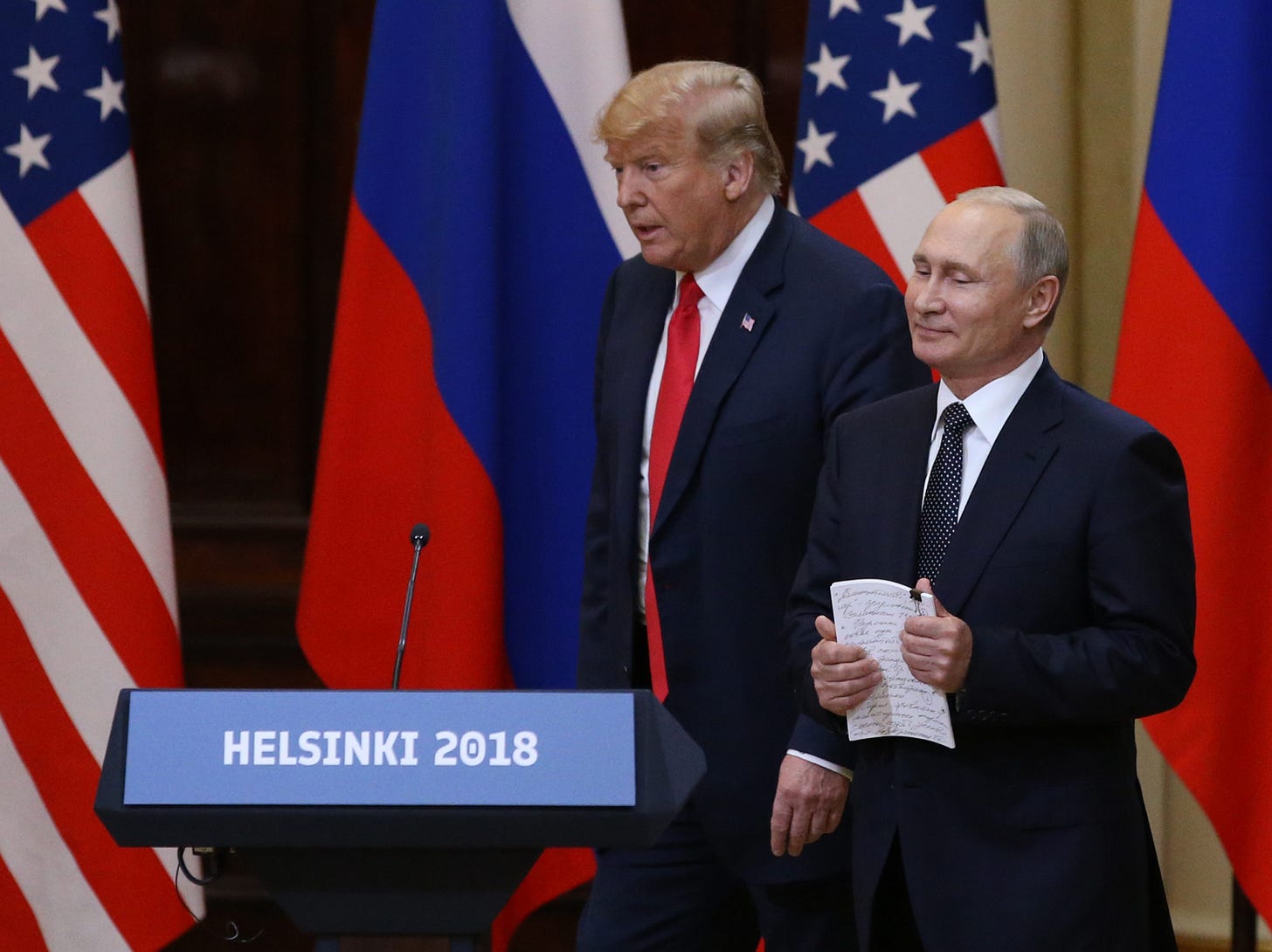When It Comes to Trump and Russia, Should We Apply Hanlon’s Razor or Occam’s?
It’s getting harder to believe that this can be explained by stupidity rather than malice.

This is, I suppose, an awkward time to bring up razors, since we are in the midst of a heated debate over a television commercial about razor blades and masculinity. Whatever the merits of the particular argument Gillette is making, there is apparently a limited appetite for virtue signaling from the makers of men’s toiletries.
But coincidentally, I’ve been thinking a lot lately about “Hanlon’s Razor,” and how it might apply to recent revelations about Donald Trump and Russia. Hanlon’s Razor is a common sense aphorism that reminds us, “Never attribute to malice that which is adequately explained by stupidity.” It is a distant cousin of the more famous Occam’s Razor, which postulated that simpler explanations are more likely to be correct than complex and convoluted theories.
So, the question I’ve been asking is whether Hanlon’s Razor can be applied to the question of Trump’s bizarre romance with Vladimir Putin. Is it malice? Or stupidity? Is his fawning appeasement a sign that he is a Russian asset or a credulous dupe? Is the story of Russiagate more James Bond or, as David French suggests, more Austin Powers?
Reports that the FBI had opened an investigation into whether the president was working on behalf of Russia adds new urgency to the question. Despite my skepticism of Trump, I’ve been trying to cling to the Hanlon’s Razor explanation for all of this. But that has become increasingly difficult.
Over the weekend Max Boot laid out the maximalist case for the Trump-as-asset theory, listing no fewer than 18 reasons Trump might be a conscious agent of the Russians. It ought to be absurd, but it’s not. Some highlights:
— Trump has a long financial history with Russia. As summarized by Jonathan Chait in an invaluable New York magazine article: “From 2003 to 2017, people from the former USSR made 86 all-cash purchases — a red flag of potential money laundering — of Trump properties, totaling $109 million. … According to Trump attorney Michael Cohen’s guilty plea of lying to Congress, Trump was even pursuing his dream of building a Trump Tower during the 2016 campaign with the help of a Vladimir Putin aide….
— The Russians interfered in the 2016 U.S. election to help elect Trump president. — Trump encouraged the Russians to hack Hillary Clinton’s emails on July 27, 2016 (“Russia, if you’re listening”), on the very day that Russian intelligence hackers tried to attack Clinton’s personal and campaign servers.
— There were, according to the Moscow Project, “101 contacts between Trump’s team and Russia linked operatives,” and “the Trump team tried to cover up every single one of them.” …
— Once in office, Trump fired Comey to stop the investigation of the “Russia thing” — and then bragged about having done so to the Russian ambassador and foreign minister while also sharing with them top-secret information. Later, Trump fired Attorney General Jeff Sessions because he would not end the special counsel investigation that resulted after the firing of Comey. As Lawfare editor Benjamin Wittes argues, “the obstruction was the collusion” …
— Trump has refused to consistently acknowledge that Russia interfered in the U.S. election or mobilize a government-wide effort to stop future interference. He has accepted Putin’s protestations that the Russians did not meddle in the election over the “high confidence” assessment of the U.S. intelligence community that they did.
— Again, like no previous president, Trump attacks and undermines the European Union and NATO …
— Trump supports populist, pro-Russian leaders in Europe, such as Viktor Orban in Hungary and Marine Le Pen in France, just as the Russians do. That’s just the top third or so of the list. Do go read the rest.
Leaving aside the MAGA-lite fawning of the folks at American Greatness, who can (to borrow Jonah Goldberg’s phrase) polish any turd and who are fully on board with the “witch hunt” argument, there are really only two plausible explanations for all of this: (1) Donald Trump is a witting tool of Russia, either from conviction or because of some, as yet unknown, kompromat, or (2) he is a naive fool whose vanity blinds him to the depths of his ignorance and recklessness.
Hanlon’s Razor suggests it is the latter, and it is certainly plausible that Trump is less a character from Le Carre than Chauncey Gardiner from Being There. But, as the evidence mounts, perhaps Occam’s Razor is more on point: Maybe Trump’s servility to Russia is precisely what it appears to be.


